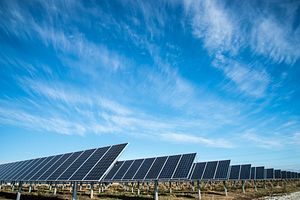Trans-Pacific Views author Mercy Kuo regularly engages subject-matter experts, policy practitioners, and strategic thinkers across the globe for their diverse insights into U.S. Asia policy. This conversation with Barbara Finamore – Senior Strategic Director, Asia, at the Natural Resources Defense Council and Founder of NRDC’s China program; co-founder and president of the China-U.S. Energy Efficiency Alliance; and author of newly-published Will China Save the Planet? (Polity Press 2018) – is the 165th in “The Trans-Pacific Views Insight Series.”
Explain how China is the leading the clean energy revolution.
China has identified the most promising clean technologies of the 21st century and is putting its considerable resources in place to support these strategic industries. The country’s massive investments have set in motion a dramatic downward spiral in the cost of renewable energy and electric vehicles that is reverberating throughout the world, with major benefits for the climate.
China’s efforts are transforming the economics of our global energy system. Solar may become the cheapest form of electricity in five years. Building new wind and solar plants will soon become cheaper than buying fuel for existing coal plants. China’s leadership is essential in moving the world from an energy system that is two-thirds fossil fuel now to one that is three-quarters renewable energy by 2050. According to the United Nations Intergovernmental Panel on Climate Change (IPCC), we must meet this target in order to avoid the most devastating impacts of climate change.
What is the global system of green finance and which countries are leading the way?
The IPCC says that the world must invest $2.4 trillion in low-carbon energy technologies every year through 2035 – a sevenfold increase – to avoid climate catastrophe. But public financing can only provide a small percentage of the amount needed. A system of green finance – one that provides incentives for green investments while restricting polluting investments – can mobilize private capital to provide the rest.
China is emerging as a leader in green finance. In 2016, China drafted the world’s first comprehensive framework for green finance and launched a green bond market. In two years, it has already become the second largest green bond market in the world after the United States.
China also played a leading role in forging an international consensus on the importance of greening the world’s financial system. As a result, the G-20 approved a report that lays out seven policy recommendations for countries to create enabling environments for green finance.
Assess the foreign policy consequences of the U.S. decision to withdraw from the 2016 Paris Agreement.
Under the leadership of [former] President Barack Obama and President Xi Jinping, climate change collaboration flourished as the world’s two largest greenhouse gas emitters shared technical, market, and financial expertise. By working constructively together to jointly develop and promote climate solutions, the United States and China strengthened their respective efforts to develop green, low-carbon, and climate-resilient economies. Their leadership also helped to galvanize global climate action that culminated in the Paris Agreement.
By President Trump declaring his intention to abandon the Paris Agreement, the Trump administration may become the only government in the world to say “no” to the massive economic opportunities that accompany the transition to a clean energy future. Even Nicaragua and Syria, the only two initial holdouts to the Agreement, have now signed on. Although President Trump campaigned on a pledge to put “America First,” his reckless move effectively puts America last. In the larger context, this is part of President Trump’s apparent ambition to separate the U.S. from the broader global community that emerged in the aftermath of the last World War.
What is the impact of U.S.-China trade tensions on the clean energy industry?
The nearly 200 countries that joined the Paris Agreement have a shared interest in accelerating the momentum of solar energy. Yet the Trump administration is slowing down progress, imposing a 30 percent tariff on imported solar cells and modules, ostensibly to protect U.S. manufacturers from lower-priced imports. This tariff, however, was widely opposed by the rest of the solar industry because the damage it will cause vastly outweighs any potential benefits. Higher-priced panels will significantly reduce the pace of new solar energy installations, increase climate change emissions, and lead to significant job losses nationwide.
By slowing demand for solar energy, the tariff will eliminate an estimated 23,000 jobs in the first year alone. This includes solar panel installation, the fastest-growing employment sector in America. Moreover, based on previous experience, Trump’s “sun tax” is not likely to lead to a renaissance in U.S. manufacturing of solar cells and panels.
What should U.S. policymakers understand about China’s global leadership in clean energy technology?
China’s push to become a global leader in clean technology brings it substantial economic benefits. In contrast, President Trump is trying to overturn the very programs that were designed to strengthen America’s leadership role in clean energy. The U.S. administration is also reducing federal funding for environmental research, the biggest driver of innovation.
The trade barriers erected by the Trump administration are not in anyone’s economic interest. Experts argue persuasively that the best way for any country to derive lasting economic gain from the solar industry is to help maximize the industry’s efficient global growth. They urge the United States and China to focus on leveraging their own comparative advantages and pursue technological innovation.
Despite the rapid progress of the global clean energy revolution, China and other countries face many of the same formidable challenges. It is also in both country’s self-interest to share experience and insights on how to address these challenges.

































